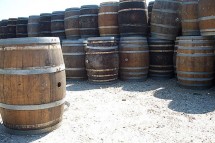Moravagine (by Blaise Cendrars)

Paul le Farge points out in his learned introduction to the nyrb edition of this tremendous novel that, as Blaise Cendrars is the alter ego of the author, Frederic Sauser, so Moravagine is Blaise Cendrars’ alter ego. Moravagine, perhaps the sole authentic descendant of the last King of Hungary, perhaps merely a hallucination, is “a dark little man skinny, knotted and desiccated as a vine-stock, seemingly burned by the flame that flickers in the depths of his great eyes. His forehead is low. His eye-sockets deep. The circles beneath his eyes almost touch the creases about his mouth. His right leg, the knee afflicted with anchylosis, forms a right angle and he limps terribly. His hands dangle at the ends of arms as long as a monkey’s”
In this unprepossessing figure, first seen masturbating into a goldfish bowl, our narrator sees “the superb creature who was to lead me to a grandstand seat at a tremendous spectacle of revolution and transformation, the transvaluation of all social values and of life itself” and so he assists the superb creature from a psychiatric asylum (operated by Doctor Stein who lives “exclusively on curds of milk, steamed rice and buttered bananas…the initiator of the health-dress and hygienic camel-hair underwear”). Under orders from the sensationally effective and mysterious organisation of which they are members, the two swing across Russia, Europe and South America murdering and terrorising in the name of revolution.
“Here, then, are the new elements that were to pulverize the Empire.
The powerful explosive and the choking gas into which A.A.A. had poured all his will for destruction. The infernal machine, the subtly triggered bombs into which Z.Z. had put all his longing and desire for suicide. The meticulous preparation of the assassination, the place, the chosen date, the designation of our accomplices, the assignment of roles, our training programme, the necessary stimulants, the armament – into which Ro-Ro (our leader, Ropschin) had put all his will for power, all his love of risk, his energy, his tenacity, his mad temerity, his audacity, his decisiveness. We were trimmed for action and could not have reversed the process if we had wanted to.”
Cendrars is a luminous, entrancing writer, the story is horrifically fascinating, and the prose dense and sublime. Moravagine is fifteen and in love –
“Everything around me became a voice, an articulation, an incantation, a tumescence. I could see the swaying of the tree-tops: the foliage of the park opened and closed, borrowing the gestures of voluptuous forms; the sky was tense and arched like a rump. I became extraordinarily sensitive. Everything was music to me. An orgy of colour. Vigour. Health. I was happy. Happy. I was aware of the profound life and ticklish root of the senses. I threw out my chest. I felt myself strong, all-powerful. I was jealous of all nature. Everything should give in to my desires, obey my whims, bend before the wind of my breath. I commanded trees to fly, flowers to rise in the air, I ordered the meadows and the house foundations to run, to about-face. Rivers, flow back to your source: let all things fly to the west to feed the furnace of the sky against which Rita soars like a pillar of perfume.”
Unfortunately for Rita, “Woman is malignant. The history of all civilization shows us the devices put to work by men to defend themselves against flabbiness and effeminacy. Arts, religions, doctrines, laws and immortality itself are nothing but weapons invented by men to resist the universal prestige of women. Alas, these vain attempts are and always will be without the slightest effect, for woman triumphs over all abstractions”. Women are “all-powerful”, “masochistic”, “malignant” and “engender death”. So the intrepid couple do their best to cleanse the world of women, one at a time. Or at least Moravagine does the dirty work at which his companion never ceases to be amazed and amused.
The closest this book comes to humour is when part of the organisation’s plan necessitates travelling by rail, each in a barrel of sauerkraut:-
“Loading and unloading can be very inconvenient for one anyone travelling in a barrel, for then he gets rolled, jarred and ricocheted and risks spending the rest of the voyage on his head. But all this has been thought of. Our barrels are carefully padded on the inside and an especially thick layer gives extra protection to the head and shoulders. The barrels are very spacious, you can live in them in relative comfort. They can be shut from the inside by a lever which is within reach of the hand. This system allows for ventilation on the way; the lever only pulled to during stops or trans-shipping. When the lever is locked the barrel is hermetically closed. At such times the traveller has two little rubber tubes at his disposal Through one of them he draws air from outside, through the other he breathes out air that has been used. It’s important not to make a mistake, and it’s rather awkward making use of these tubes, for as one is half-smothered by the fumes of the sauerkraut the tendency is to breathe normally. Above all one must keep one’s mouth closed and breathe as slowly and regularly as possible. From the lever handle is suspended a little sack containing discs of pemmican, chocolate bars, a bottle of crème de menthe, a phial of ether and some sugar lumps.”
And there is worse to be found than some rather soiled sauerkraut when the train reaches its destination. You have been warned.
Moravagine, the man and the novel, are fabulous, disgusting, verbose, audacious and absolutely nuts.
Leave a comment...
While your email address is required to post a comment, it will NOT be published.


1 Comment